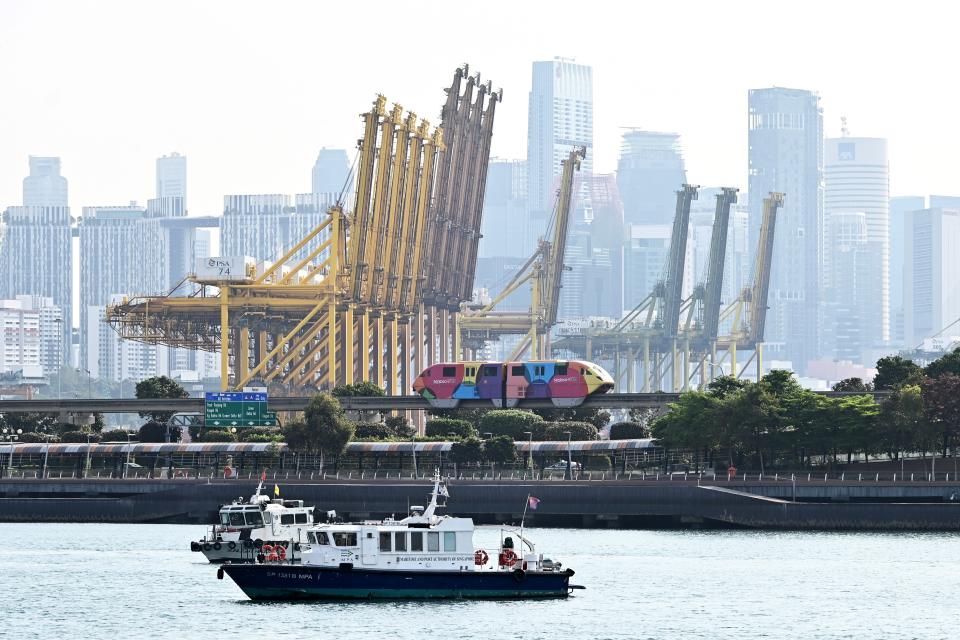Singapore businesses see sharp downturn in economy on trade war

By Michelle Jamrisko
(Bloomberg) -- With no let-up apparent in global and regional trade tensions, Singapore’s business community has slashed its expectations for the near-term economic outlook.
“Because we are hugely export-dependent, because of the slowing down in the economy, because of tension, because of loss of business confidence -- we need to adjust” growth expectations, Ho Meng Kit, chief executive officer of the Singapore Business Federation, said Monday at an event on the regional outlook hosted by the Asia-Pacific Economic Cooperation secretariat.
The city state’s economic data have taken a turn for the worse recently after showing relative resilience earlier this year. Exports slumped in June to their second-worst rate since the global financial crisis, purchasing managers indexes have slipped into contraction territory, and the economy shrank the most in almost seven years in the second quarter.
“Most economists in Singapore are focusing between zero and 1% growth this year,” Ho said. Singapore’s economy is set to grow 1.6% this year, according to the median in a Bloomberg survey of economists conducted last week.
Given the country’s reputation as a “canary in the mine shaft” for regional and global growth, the latest data showing Singapore’s economy “rapidly slowing” are a warning sign for other economies, Ho said.
“I send a warning to all other APEC economies that are usually export-dependent: The situation going forward does not look good for APEC,” he said.
Ho said one critical message for leaders in the 21-member APEC forum is the need to “keep open the multilateral rules,” even as outfits like the World Trade Organization are ripe for reform.
“The WTO cannot be held hostage to the current tension” around trade, Ho said. He added that the SBF is “very concerned” about the WTO’s dispute settlement mechanism, which is expected to expire in December as the U.S. is blocking new appointees to the appellate body.
Here are more comments from speakers at the event:
Denis Hew, director of APEC’s policy support unit, said “risks have been increasingly more tilted to the downside and more to the short term,” with trade the “first and foremost” risk
Trade tension driven by the U.S.-China dispute is “beginning to take its toll on consumption,” which has been a growth driver across APEC; businesses will “think twice” about setting up new factories or investments in APEC right now, Hew said
APEC and the world must move forward on issues such as saving the WTO, even as the U.S. is at odds with other countries, said Tommy Koh, ambassador-at-large in Singapore’s Ministry of Foreign Affairs; the U.S. “may be important, but it’s not indispensable,” he said
Joanne Tyndall, New Zealand’s high commissioner to Singapore, said the hard-fought Paris agreement on climate-change showed the U.S. doesn’t dictate global policy, as “there has not been a domino effect” of members leaving the climate pact after the U.S. pledge to withdraw in 2017
© 2019 Bloomberg L.P.

 Yahoo Finance
Yahoo Finance 